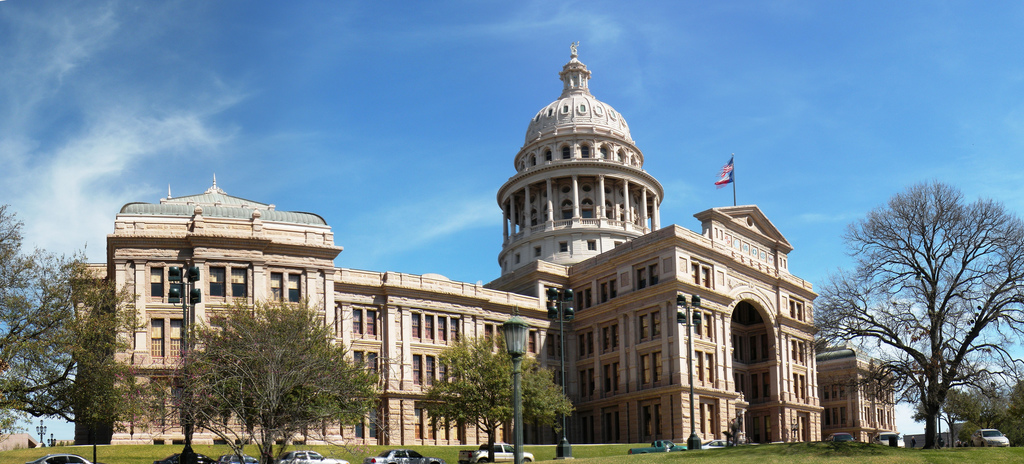Executive Summary
- TRTA commends budget leaders for remaining steadfast to funding the TRS solvency plan passed last session. Today, the TRS pension fund is actuarially sound.
- More than half of all current TRS retirees have never received a pension increase.
- A TRS member who retired after September 1, 2004 has gone 17 years with no increase in their retirement benefits.
- In 2020, TRS reported spending $1.2 billion on investment fees alone.
- TRS retired and active school employees have worked diligently to get TRS into a financial position that can afford to provide retirees with a pension increase.
- That option is now on the table for the Texas Legislature to consider this session and TRTA members ask that the Legislature pursue this goal!
It has been a productive week in the Texas Legislature and for the legislative team at the Texas Retired Teachers Association (TRTA). Earlier this week, the Senate Finance Committee and House Appropriations Committee met to discuss TRS funding. You can read TRTA’s updates on those meetings by clicking here (part 1) and here (part 2).
The House Appropriations Subcommittee on Article III, which includes funding for the Teacher Retirement System of Texas (TRS), met on February 25. The subcommittee is chaired by Rep. Terry Wilson (R – Georgetown).
Tim Lee Testifies on Behalf of TRTA Members
TRTA Executive Director Tim Lee provided public testimony during the hearing. Tim shared his appreciation to the members of the Legislature for fully funding SB 12, saying “we are on a path to ensuring we have the best funded teacher retirement system in the nation.”
He added that the funding for SB 12 was TRTA members’ highest priority for the 87th Legislative Session, and that members will defend this funding to keep it in the budget. He then pivoted, saying TRTA members are ready to talk about the possibility of providing a benefit enhancement for TRS retirees.
Lee said, “our system is actuarially sound,” adding that since the pandemic started, TRS has earned $30 billion.
TRTA members are reasonable and responsible advocates. We have fought the good fight and worked as trusted partners with our elected leaders. Our members have sacrificed much to ensure the trust fund is financially stable and fiscally strong.
More than half of all current TRS retirees have never received a cost-of-living adjustment. With the trust fund able to absorb the cost of a benefit increase, now is the time to resolve this situation!
Lee referenced testimony provided earlier in the week by TRS Executive Director Brian Guthrie that a COLA may cost an estimated $17 billion, amortized over a 20-to-30-year period, if absorbed by the fund. Lee then pointed out that TRS reported spending $1.2 billion on investment management costs in 2020. Based on this reality, TRTA projects that TRS will spend $36 billion on investment fees alone during that same period of time.
“A COLA is less than half the cost of the fees,” Lee added.
Lee thanked committee member Rep. Jarvis Johnson (D – Houston), who has filed a bill that would allow retirees to come back to TRS-Care. Johnson replied, “we all believe in teachers and we have to put our money where our mouth is . . . we have to let them know their future will be secure.”
He then asked Lee why retirees may have left TRS-Care. As our members know, the health insurance program underwent significant changes in 2017, creating confusion for some and prompting many plan participants to seek other options in the individual insurance market.
Particularly for retirees over age 65, there are numerous plans marketed to retirees during open enrollment periods, and those plans are not group plans like the one offered by TRS. A big driver for those who left the plan was also the increased costs to cover dependents. Earlier in the week, TRS Executive Director Brian Guthrie said about 30,000 people left the plan, which included thousands of dependents.
Rep. Geanie Morrison (R – Victoria) expressed concern about how retirees have been affected by the pandemic. Lee remarked that they are in high-risk groups that are susceptible to the virus due to age and health conditions, and that many could not return to work in school districts for supplemental income due to these risks.
Morrison also asked how retirees may have spent the supplemental check they received in 2019. Lee said many retirees had to pay for medical costs and other bills and were unable to save that additional income. Lee thanked the legislative members for their work on providing the supplemental payment last session.
Reps. Lynn Stucky (R – Denton) and Gary Van Deaver (R – New Boston) inquired about the Texas Retired Teachers Foundation (TRTF) Tutor Program, which was launched by TRTA’s charitable partner organization in 2020. TRTF is seeking additional tutors to participate in the program and is hoping to raise $10 million so that 250,000 tutoring hours can be donated to students all across Texas.
After the hearing, Lee said that “TRTA members are spending more on their health care costs, groceries, and many new expenses as a result of the pandemic. If the Legislature sees an opportunity to provide retirees a cost-of-living adjustment this session, our members are far more interested in that happening than expanding TRS administrative overhead. TRTA members are passionate supporters of TRS but are at a crisis point and need an increase in their pension checks.”
Other News from Today’s Hearing
Rachel Stegall of the Legislative Budget Board (LBB) provided brief testimony about funding recommendations for TRS, which includes an increase of $333.7 million over the previous biennium primarily due to the passage of Senate Bill 12 in 2019. SB 12 was the landmark legislation that increased contributions from the state, school districts, and active employees using a stairstep approach and made the pension fund actuarially sound.
Tamara Aronstein, a Policy Analyst with the Texas Sunset Commission, discussed the sunset review of TRS that has taken place over the past year and a half. Overall, the Sunset Staff Report makes recommendations that do not require appropriations from the state budget, but do suggest that TRS make changes to improve its relationship with its members.
For example, the Sunset Commission recommends that TRS appoint an ombudsman to assist members, investigate member complaints, and report directly to the TRS Board of Trustees. TRTA fully supports this recommendation.
Another Sunset Commission recommendation is that TRS modify employment after retirement penalties so that retirees do not lose a full monthly annuity if they work more than their allotted hours for a school district. Instead, the report suggests that retirees could pay back to the system only the amount by which they exceeded their hours.
Rep. Gene Wu (D – Houston) asked how many retired teachers are working in school districts on a monthly basis and how many end up violating the work hours limit.
TRS Executive Director Brian Guthrie later addressed this question, answering that between June 2019 and today, TRS sent letters to approximately 63,000 retirees who were contemplating or were returning to work in a school district. During that same period, 1,205 notifications sent to members who had violations. Guthrie reiterated testimony from earlier in the week that violations are not discovered until after school districts send in monthly reports.
Director Guthrie’s testimony expounded upon an exceptional item not covered in previous legislative hearings earlier in the week. TRS is asking for $3 million to open a pilot regional office in the El Paso area. Guthrie stated that one reason for the pilot office is that it is “harder for members to get to Austin from outlying areas.”
Though TRS offers technology to those members who cannot travel to Austin and has been using it heavily since the COVID-19 pandemic began, many members still prefer face-to-face meetings when discussing their impending retirements.
Guthrie said that the pilot office El Paso will help the agency determine how successful regional offices in other areas may be in serving TRS members. El Paso was selected specifically because of the city’s distance from Austin and the large number of members in the area who need TRS services.
Wu also asked Guthrie about the number of teachers who may be leaving the profession due to the pandemic. Wu said many friends in the profession believed there would be a mass exodus of teachers “who didn’t want to . . . risk their lives.”
Guthrie responded that the “number of actual retirements is down slightly.” Requests for information about retiring have increased but have not yet resulted in increased retirements.
Thank you!
Thank you for being a member of TRTA! Be sure to download the TRTA app to receive all of the latest legislative updates.



